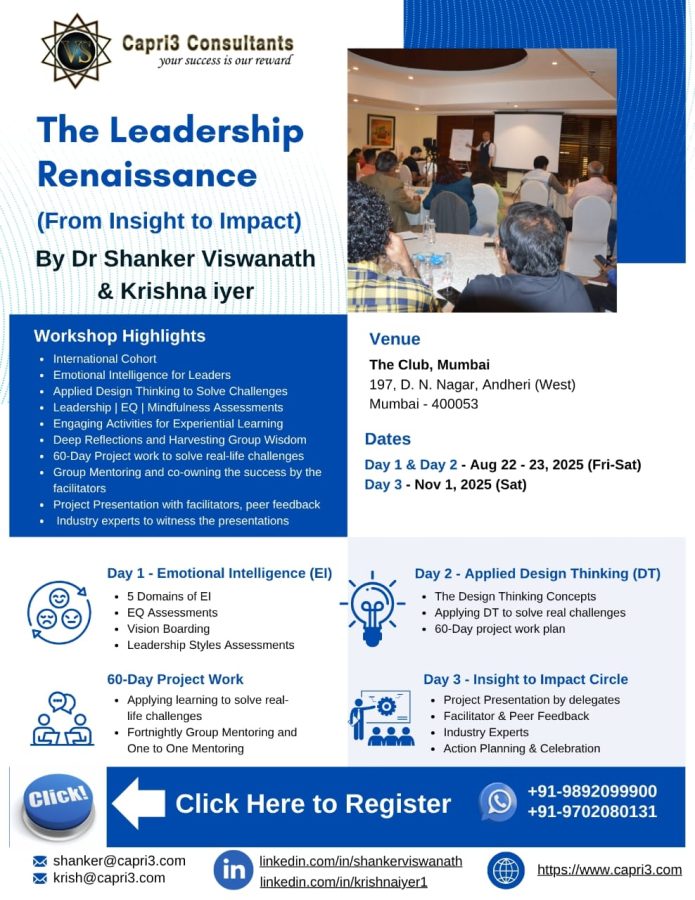Why this Workshop?
Stress management - Stress is a condition or feeling experienced when a person perceives that demands exceed the personal and social resources the individual is able to mobilize. In this context, the term 'stress' refers only to a stress with significant negative consequences. Stress produces numerous symptoms which vary according to persons, situations, and severity. These can include physical health decline as well as depression. The process of stress management is one of the keys to a happy and successful life in modern society
Many practical stress management techniques are available, some for use by health practitioners and others for self-help, which may help an individual to reduce stress, provide positive feelings of being in control of one's life and promote general well-being.
Time management- We often find our self running out of time -Weekly, daily, hourly? For many, it seems that there's just never enough time in the day to get everything done. When you know how to manage your time you gain control. Rather than busily working here, there, and everywhere (and not getting much done anywhere), effective time management helps you to choose what to work on and when. This is essential if you're to achieve anything of any real worth.
The 80:20 Rule
This is neatly summed up in the Pareto Principle, or the '80:20 Rule'. This argues that typically 80% of unfocussed effort generates only 20% of results. The remaining 80% of results are achieved with only 20% of the effort. While the ratio is not always 80:20, this broad pattern of a small proportion of activity generating non-scalar returns recurs so frequently as to be the norm in many areas.
Time Management is the act or process of planning and exercising conscious control over the amount of time spent on specific activities, especially to increase effectiveness, efficiency or productivity. Time management may be aided by a range of skills, tools, and techniques used to manage time when accomplishing specific tasks, projects and goals complying with a due date. This set encompasses a wide scope of activities, and these include planning, allocating, setting goals, delegation, analysis of time spent, monitoring, organizing, scheduling, and prioritizing.
This workshop will give an insight to the participant on Stress and Time Management with solutions on these fronts
Objectives of the Workshop
To introduce, review and discuss the following aspects:
- What is Stress and types of stress
- The triple A approach to stress reduction
- Steps in creating a stress-reducing lifestyle
- Certain routines to reduce stress
- Coping with major events
- Importance of creating a stress log
- Importance of prioritizing one’s time
- The 80:20 Rule
- Preparing a personal Productivity Journal
- Tackling procrastination
- Crisis Management
- Importance of organizing one’s workplace
- Meeting Management
Benefits of attending the Workshop
By the end of the workshop, the participants will be able to:
- Identify what is stress
- Cite the best approach to a stressful situation (Alter, Avoid, or Accept)
- Associate with the lifestyle elements you can change to reduce stress
- Use routines, environmental and physical relaxation techniques to reduce stress
- Find solutions to cope with major events
- Prepare a stress log to identify stressors and create a plan to reduce or eliminate them
- Plan and prioritize each day’s activities in a more efficient, productive manner
- Find solutions to avoid procrastination quickly and easily
- Develop a plan to deal with crises effectively and quickly
- Organize one’s workspace and workflow to make better use of time
- Delegate more efficiently
- Use rituals to make your life run smoother
- Plan meetings more appropriately and effectively

